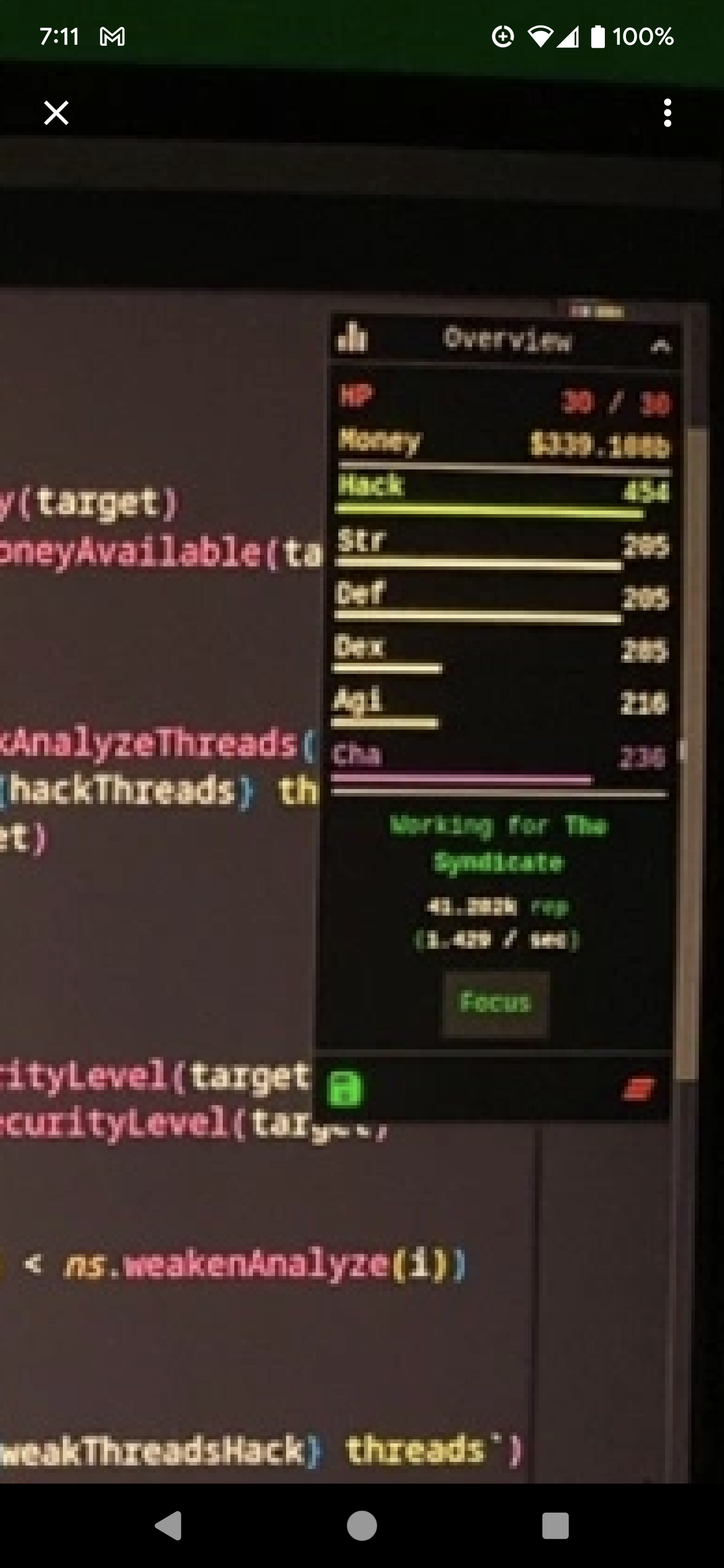Lol ok I’ll ask: wtf is that code?
The code is for an incremental RPG programming game called Bitburner, which uses a version of JavaScript that has some additional game-specific APIs and restrictions (the game originally ran in a web browser)
This code in particular is a (flawed) solution to the first problem the game throws at you, which is finding a way to hack as much in-game money as possible from in-game servers. (The problem is more complicated than it appears at first glance, and I’ll try to elaborate if you ask.)
Urghh, now I must post before I leave…
No it’s actually to compute the threads required for a hghw batching script :)
My bad, was wondering why it was called “recon”… HACK GROW HACK WEAKEN? What on earth is this madness? Did… did you… did you do this on purpose?
Anyways, I think I’m going to write the essay despite no one asking.
I am trying to.get into the game but I am very clueless do I have to learn javascript before continueing or will it teach me
there’s documentation , but it’s a good way to learn javascript imo. It gives you an environment to interact with javascript and that’s a perfect place to go hands-on and learn programming :)
A different game
What game?
Might be bitburner?
No idea though, just saw this

It is bitburner :3
Bitburner is the shit
OK I was just shitting on JS but any way to gamify programming might be good for me. I’ll check it out
Is that like a programming game? (I know nothing about programming haha)
Love bitburner. I have a tiered hacking script I’ve written that distributes itself to all hacked servers and manages their cash whilst extracting the max amount. Great game 10/10
I’ve been banging my head against the wall at making a continuous batching script. I finally got it to (kind of) work using the additionalMsec property of the hack, weak, and grow to time the batches. I’m getting a billion a second with it rn :)
Sounds like you’re on the right track! I have admittedly taken a break and haven’t used ns3 so it’s probably way more capable now. Great game though!
What the fuck kind of JavaScript fuckery is
for (; ; i++)i is already initiated so the first statement isn’t necessary so it’s empty.
The loop is ended with a conditional break statement so the loop end criteria isn’t necessary so it’s empty.
We want each iteration to increment i so it’s i++
That’s how you end up with (;;i++)
lol I’ve got bitburner running on autopilot right now
Omg a bitburner player
Did you somehow convince KDE to be a tiling window manager? Is that what I’m seeing here?
You play League of Legends on linux?
yup 😊 although they’re going to force their kernel level anti cheat soon. So i gotta enjoy it while it lasts
I finally quit and started playing overwatch2 instead. Same amount of salt/toxicity!






